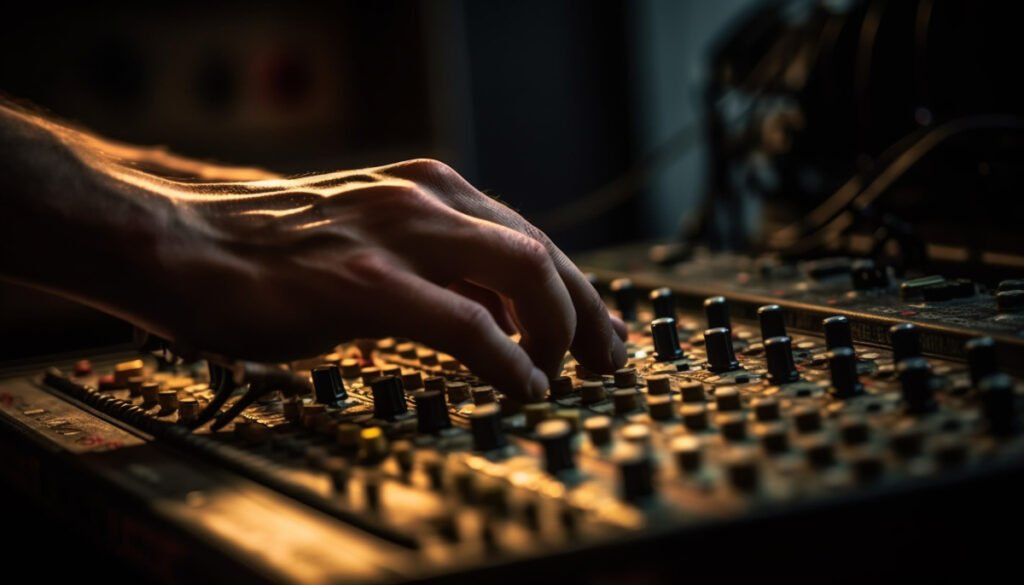Sound Recording ,Audio Engineering & Music Production Course
M Media Institute delivers relevant knowledge and provides practical training in Sound Recording & Audio-Engineering to enhance the skills of students in the best way.
About Course
SOUND RECORDING, AUDIO ENGINEERING & MUSIC PRODUCTION COURSE
INTRODUCTION
Sound engineering is the art and science of recording, mixing, and producing audio. It involves balancing sound quality, effects, and acoustics for music, film, and live performances. Using advanced technology, sound engineers enhance audio clarity and impact, ensuring an immersive listening experience across various media and entertainment industries.
CAREER
-
Recording Engineer – Works in studios to record and mix music.
-
Live Sound Engineer – Handles sound at concerts, events, and performances.
-
Mixing & Mastering Engineer – Specialises in fine-tuning recorded audio.
-
Broadcast Engineer – Works with TV, radio, and online media.
-
Game Audio Designer – Creates sound effects and music for video games.
-
Post-Production Engineer – Works in film and television for sound editing and mixing.
COURSE CONTENT
-
Introduction to Sound Engineering – Basics of sound, acoustics, and audio fundamentals.
-
Microphones & Recording Techniques – Types of microphones, placement, and recording methods.
-
Audio Mixing & Editing – Equalisation (EQ), compression, effects, and digital audio workstations (DAWs).
-
Live Sound Engineering – Sound system setup, mixing for concerts, and troubleshooting.
-
Studio Recording Techniques – Multitrack recording, vocal/instrument recording, and mastering.
-
Music Production – MIDI programming, beat making, and arranging.
-
Film & TV Audio – Foley, dubbing, and sound design for media.
-
Acoustics & Soundproofing – Room acoustics, noise control, and studio setup.
-
Broadcast & Podcast Audio – Audio production for radio, TV, and online platforms.
-
Final Project & Practical Training – Hands-on experience in live and studio environments.
SOFTWARES:
Pro Tools,Ableton Live,Logic Pro X,FL Studio, Adobe Audition, etc, changes according to the technology.
ELIGIBILITY CRITERIA
12th +
ABOUT COURSES:
Certification, Diploma, Degree in Sound Engineering
ESSENTIAL EQUIPMENT & TOOLS
-
Microphones – Dynamic, condenser, ribbon, and shotgun microphones.
-
Mixing Consoles – Analog and digital mixers for adjusting audio levels.
-
Audio Interfaces – Connect microphones and instruments to computers for recording.
-
Digital Audio Workstations (DAWs) – Software like Pro Tools, Logic Pro, FL Studio, and Ableton Live.
-
Studio Monitors & Headphones – High-quality audio playback for accurate mixing.
-
Effects Processors & Plugins – Reverb, delay, equalisers (EQ), compressors, and more.
SOUND ENGINEERING IN DIFFERENT INDUSTRIES
-
Music Production –Recording and mixing albums, singles, and live performances.
-
Film & Television –Foley, sound effects, dubbing, and background scores.
-
Gaming – Creating immersive soundscapes and effects for video games.
-
Live Events – Managing sound for concerts, corporate events, and theater productions.
-
Podcasting & Broadcasting – Ensuring clear and high-quality audio for spoken content.



